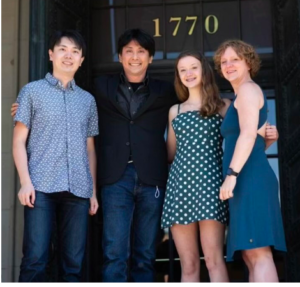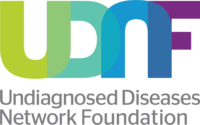02 Apr Phoebe Marshall
 For a lot of my childhood, I was really hopeful that my doctors were going to figure out a diagnosis that would miraculously explain everything that was going on with me. I was young and didn’t understand much about the world around me but what I did know was that doctors were my version of a superhero and they were the people that had a cure for everything.
For a lot of my childhood, I was really hopeful that my doctors were going to figure out a diagnosis that would miraculously explain everything that was going on with me. I was young and didn’t understand much about the world around me but what I did know was that doctors were my version of a superhero and they were the people that had a cure for everything.
I was six or seven years old when I started to realize that I was what people called a “medical mystery” and that if I ever was going to get a diagnosis, it would take a long time. I grew up with doctors always saying: “Well, I wish I had more to say but Phoebe is a tough case to crack. I don’t have any answers for you”. I became used to the fact that I wasn’t “normal” and I didn’t know if I would ever get diagnosed. When my mom told me that we were going to be going to Boston to see doctors that specialized in certain areas that we still needed answers in, I truly had no idea what I was getting into. However, as soon as I heard the words trip and airplane, I was on board.
Flash forward seven years, I am now 14 years old with a partial diagnosis thanks to the UDN. I think it’s so cool that I can say: “There are amazing scientists that are working on MY gene mutation”. Scientists have a whole other language so I’m not too involved in these conversations, but basically so far, my diagnosis is a lack of function in the gene GDF11. Hearing that there were people that cared enough to spend years on me and other probands felt surreal. I am really grateful for modern science and I hope everyone realizes that these individuals are doing amazing things.
I went to DC this past summer for a UDN conference and there were so many smart people doing super cool things with flies and worms and technology, all beyond my understanding. At this conference I got to speak on a panel about my experience as a child participant in the UDN. This was an opportunity I did not want to miss because oftentimes scientists view patients like me as ‘Proband 3’ (or something along those lines) and this was my opportunity to show that the work that they were doing had an impact on real people.
I really loved speaking about my experience because I wanted to make sure that the professionals knew how much an impact they have on so many lives. Another thrill of the conference was that I got to meet one of the scientists that worked on my gene! It’s a weird thing for a 14 year old to be excited about, but I was so happy to put a face to the person behind the scenes. I also wanted people there to know that kids like me have to live with this every single day. We don’t get any breaks from our disease. From the outside, you would never guess that I had anything going on; I go to school regularly and have a good social life. I’m a normal teenager but sometimes I just have to live life a little differently than others. My symptoms affect everything about my life and I really wanted to get that point across. I wanted them to know that even though I’m an average teenager in so many ways, I call the hospital my second home because of how much of my life I have spent there. I am so fortunate to have a partial diagnosis, as many don’t get to this point. The UDN has restored my hope for my future and there will never be any words that can express how thankful I am.



